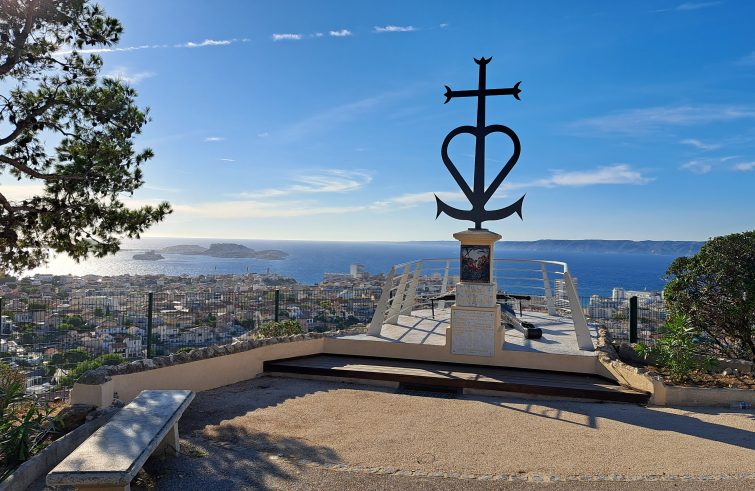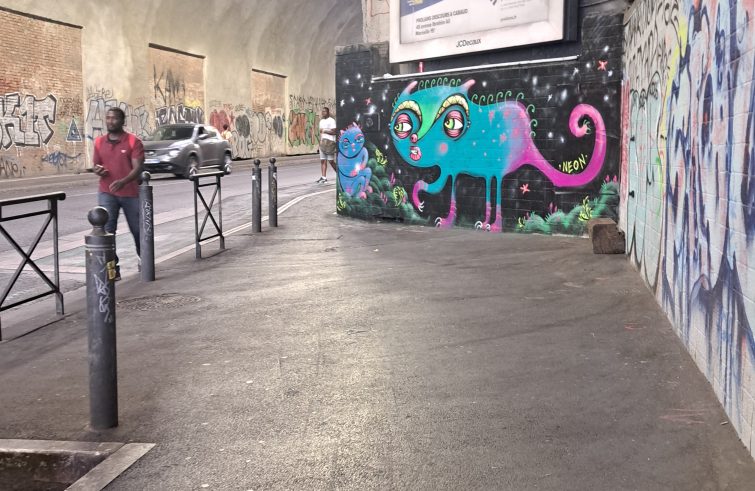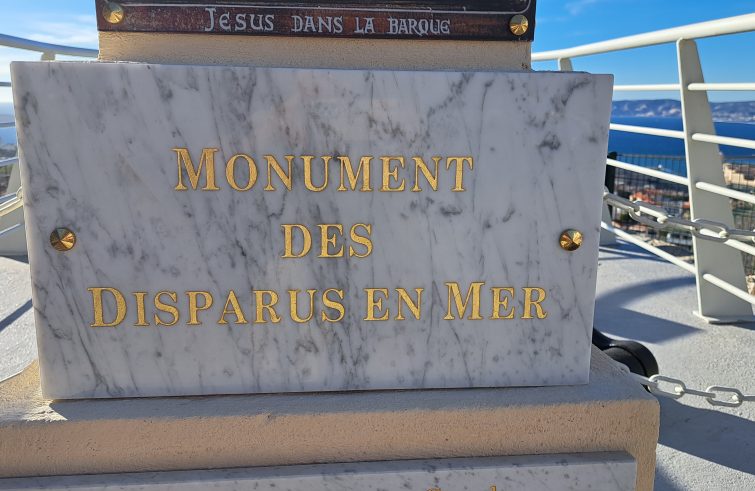
(Marseille) “We hope that those who find it difficult to accept the stranger will be converted by the gestures and words of Pope Francis,” said Anne Giraud, diocesan delegate for the pastoral care of migrants and president of Secours Catholique (Caritas) in Marseille. She expressed her expectations for Pope Francis’ visit, looking forward in particular to the moment of prayer and reflection at the memorial dedicated to sailors and migrants lost at sea, which overlooks the azure bay from the hill where the church of Notre Dame de la Garde stands. Marseille is the first point of entry for migrants entering France from Italy. They come from different countries. Some come from sub-Saharan Africa, others from other countries including Afghanistan. All have crossed the Mediterranean. The last challenge is to pass through Briançon, a small village in the mountains.
 Do they talk about their experiences when they arrive?
Do they talk about their experiences when they arrive?
Generally speaking, many of them are traumatised when they arrive and it’s very difficult to get them to open up and talk about what they’ve been through. So you have to build a relationship of trust and take the time to be with them and get to know them.
One thing that is clear is that many of these people have been in detention camps in Libya. They suffered physical and psychological abuse, they lived in conditions of slavery.
They have spent months, even years, in very difficult and painful conditions, without food, without support, alone. They travel with just one small bag.
The last passage is through Briançon, in the mountains. How did they manage it?
They set off without the slightest equipment. Especially in winter, when the temperature drops below zero. They suffer from frostbite. Some even lost their toes because the shoes they were wearing when they crossed the border were completely unsuitable for walking in the Alps and in the snow.
How many migrants arrived in Marseille today?
I have no precise figures.
But over the last few summer months, from June to September, have you noticed an increase in the influx of migrants?
There have been several factors. First of all, the expulsion of migrants from hotels in Paris who were transferred to Marseille. This summer, there was also a massive arrival of unaccompanied minors, mainly from Africa, many of whom passed through Briançon.
As Church, what initiatives have you taken to help and support these people?
We mostly offer accompaniment. Not least because we lack the means to respond to their needs in a concrete way. Accompanying them means helping them to enjoy all the rights to which they are entitled. In the case of unaccompanied minors, it is a question of assessing their age so that they can make an application for asylum.
How can the city of Marseille contribute?
This problem is not the responsibility of the city, but of the prefecture. Unfortunately, there is not enough housing to accommodate everyone. Existing housing is under great pressure because it cannot meet the needs of Marseille’s precarious population. Moreover, the arrival of migrants only adds to the difficulties. The issue of housing is crucial.
 Today, Pope Francis is making a very important symbolic gesture at the memorial dedicated to sailors and migrants lost at sea. What does this mean for you?
Today, Pope Francis is making a very important symbolic gesture at the memorial dedicated to sailors and migrants lost at sea. What does this mean for you?
We fully support the positions of the Pope, his words and his gestures with our actions. Ours is a diocesan service for migrants, strongly supported by Archbishop Jean-Marc Aveline.
The Pope has the courage to denounce worrying situations. But fraternity and otherness are always at the heart of his speeches and gestures.
We Italians find it difficult to understand why France has decided to close its borders. Can you explain the reasons behind this decision?
It is difficult for me to answer such a political question, which can only be answered by politicians. Nor can I say what the exact reason is. Maybe people are afraid of foreigners simply because they do not know them. Maybe these decisions are driven by electoral reasons.
Fear leads to attitudes of closure. But if we can break the chains of fear, I believe that our societies will enjoy greater fraternity.









